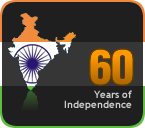Where Babuji was concerned, it was good. Babuji’s ezharai sani period took us all out of Delhi. (This picture was taken just before we left Delhi in 1955.) He was sent to the districts in the south to get administrative training. We were in the south for exactly seven and a half years. Babuji enjoyed this seven and a half years, getting new experience, working in different capacities.

Our first stop was in Trichy for a ten month period. Babuji was directly under the collector as Assistant Collector. He also was the District Magistrate, had to attend court sessions, listen to witnesses and advocates’ arguments, taking notes and passing judgments. For this he had to learn to read and write Tamil, since most of the court proceedings were in Tamil. Being a Keralite, Babuji had learnt Malayalam in school, like me and most Kerala Brahmins. We learnt to read Tamil with the help of magazines like Ananda Vikatan. Babuji started learning to read and write Tamil, which he did in a short time, with the help of his clerk Arumugam.
Within a week of our arrival in Trichy, Babuji bought our first car, a Landmaster, free India’s first automobile product, and the older brother to the Ambassador of today. The car Babuji bought was powder blue in colour. We all fell in love with it at first sight, and were very proud of it. Babuji learnt driving very quickly, with Kuppuswamy, our new driver as teacher. Kuppuswamy was with us for the next two years, till we came to Pondicherry.
Babuji decided to go to Srirangam on a Sunday – our first trip in the car. His plan was to leave home by 4.30 pm. When his clerk, peon and driver, why even our maidservant all heard of this plan, they were very much troubled and informed Babuji that on Sunday the ‘rahu kaalam’ being 4.30 pm to 6 pm, we should leave at least by 4 pm instead of 4.30 pm. “To start anything in the rahu kaalam will not end well,” was their general opinion. Babuji being one who never believed in these things pooh-poohed the idea. And we left home exactly at 4.30 pm.
As we reached the bridge connecting Trichy to Srirangam a huge truck or lorry, I don’t exactly remember what, was all of a sudden in front of us, coming at full speed. Kuppuswamy’s presence of mind saved the day, and also all our lives. He steered the car to the left in a fraction of a second, and moved the car away from the lorry’s front wheels. The car hit the bridge wall, and the sudden impact did damage the car, but not much. There was a dent, and the paint was scraped off on the left side of the car. Thank God we were saved in time.
This made such an impact on Babuji, he started having belief in rahu kaalam and respected the sentiments of other people. The car behaved very well for the next two years that it was with us. We even made a trip to Ernakulam to attend Kuttiappa’s son Raja’s wedding – three generations packed in the car - Babuji’s parents, we both and the four children. Raja the youngest, who was born in January was just ten weeks old then. And it was here that I meant Ranjini, Babuji's cousin's wife, for the first time. A boat trip was arranged for the bridegroom’s party and everybody jumped at the idea and welcomed it. I stayed back with Raja, because I did not want to take him in the boat. Along came Ranjini with her three month old baby, and with no inhibitions, asked me to baby-sit her baby also and left. And I really liked her from that moment.
Babuji had a lot of touring to do, mostly to Pudukottai, at least once a month. There he used to stay in the Traveller’s Bungalow, which had a fresh air, open loo in the fields at the back. He confided to me after his first trip that he was really frightened to use those open air loos, with the pigs (full grown huge ones) waiting to pounce on what he had left behind, once he got up.
The house in Trichy was a furnished one, arranged for us by Mr. Viswanathan Nair, the DIG then. He and his family became good friends of ours. The children also got along very well. And we even visited his native house when we went to Ernakulam. Mr. Viswanathan Nair helped us to settle down in this new place, which was very welcome. The house was in the middle of a very big compound – it was a very nice change for us from the first floor flats we had lived in Lodhi Road and Pandara Road of New Delhi. Everything was new for us, particularly for the children. This house was in Khaja Malai, away from the hustle bustle of the city.
Before leaving Delhi we distributed our furniture to two or three of our friends, and they promised to take good care of them till our return. We travelled to the south with the bare essentials like our clothes, bedding and kitchen pots and pans.
In Trichy we made good friends apart from Viswanathan Nair – P. T. Raman Nair and the Warriers. The Warriers were a happy pleasant couple, who loved our children dearly. Their only son Raja was studying, and in the hostel at that time. This friendship continued after we returned to Delhi also. And some seven or eight years ago, Raji, Muthu and I met her at her son’s place. I found Mrs. Warrier a very much broken lady, since she had lost her husband. Theirs was a love marriage, and they were in love with each other till the last.
We also had the experience of bathing in the River Kaveri. It was on the occasion of Chippachi (Babuji’s brother Viswanathan) and Chithi’s seemantham, conducted at our place in May 1956. There were more than 20 people at home for more than a week or so. That was no problem, for the house was really big. But a problem occurred one fine morning when we found there was no electricity, and our overhead tank empty. Our daily help was willing to draw water from the well for the two dozen people to take their bath, which was too much strain. So we all made three or four trips to bathe in the Kaveri. We all enjoyed it , and it was more like a picnic.
After ten months, we left for Chingleput. Babuji’s sense of humour and the way he treated his officers and subordinates equally with respect and friendship made him very popular. There were many tear-filled eyes when we left Trichy.





























